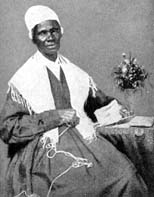In Indonesia students of kindergarten, elementary school, junior high school and senior high school have to wear uniform to go to school.
When I was in elementary school, 1974-1980, I remember each school had their own policy to decide the style, the color of the uniform and the days to wear the certain uniform. In July 1980 when I started my junior high, I still wore the different color of the uniform for my school. People could easily recognize someone as a student of a certain school from the color of the uniform, without seeing the badge of the school
In 1981, the government started to apply a policy that decided the color of the uniform for each level. Elementary school students had to wear white shirt and red skirt/shorts. Junior high school students had to wear white shirt and black blue skirt/shorts. Senior high school students had to wear white shirt and sky blue/trousers. This policy was mostly applied in state schools. Private schools were free to decide for their own students.
The main reason why students have to wear uniform to go to school, in my opinion, is to reduce the gap between the haves and the haves-not. Rich or poor, the students wear the same kind of clothes, the color, the style, and also the material when going to school. Parents do not need to provide many clothes for the children to go to school. Perhaps wearing uniform will also make the students look neat so that the teachers will be happy to see it. LOL.
In fact, the school also has a rule how long the skirt is for the girls; but not now long/short for the shorts and the trousers for boys. LOL. For the girls, their skirt must be 5-7cm under the knees. I remember during my first days in senior high school, my schoolmates mocked me for wearing such a “too long” skirt, coz following the rule. They said, “That girl is wearing her mother’s skirt.” LOL. And as a rule, teenagers listen to what their friends say more than what their parents say. LOL. It made me argue with my mom. She insisted that I follow the rule, while I felt embarrassed to go to school. At last, I hemmed my skirts by myself after I won the arguments with my mom. LOL.
Some weeks ago when taking Angie to a tailor to have her school uniform made, I didn’t find any difficult situation. Angie agreed with me to have her skirt made 5 cm under her knees, and for the sleeves 5 cm above the elbow. However, when taking the uniform, Angie complained to me coz the skirt was too long, and sleeves were too long too. She pleaded to me, “Mom, my friends will laugh at me wearing this too big skirt and shirt!!” I remember my own experience in 1983, LOL. I gave in. LOL. I asked the tailor to fix it as what Angie wanted.
Recently, many serials on television made by local producers showing the story of teenager life. The characters in those serials usually wear a knee-long skirt, and shirt with very short sleeves. I seldom watch television so I don’t realize how big the impact of this phenomenon. In order to look “modern”, students love to imitate the way the “students” in the serials get dressed. And in order to follow the trend, Angie begged me to listen to her pathetically. LOL. And as a democratic mother, I always open a healthy discussion with Angie and we will find the way out together.
However, since we live in a community where people judge other people only by the clothes, sometimes, I know people will easily judge the students to wear such “modern” style of the uniform as “immoral” ones. I must say that sometimes I am fed up with this “fossilized” way of thinking of people—reducing women only as a pile of flesh and bones.
With so many people still have this way of thinking in Indonesia, I am wondering when people will fairly see a woman. In academic situation, of course it is not appropriate to view women only from the skin, it must be from the inside of her brain. In “beauty pageant” situation, perhaps it is appropriate to view women highly only from the way they get dressed and their outer performance. LOL.
PT56 18.55 300706
 |
| foto ditambahkan dari link ini |



